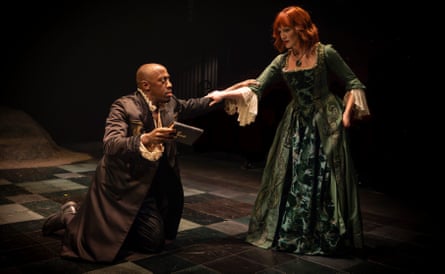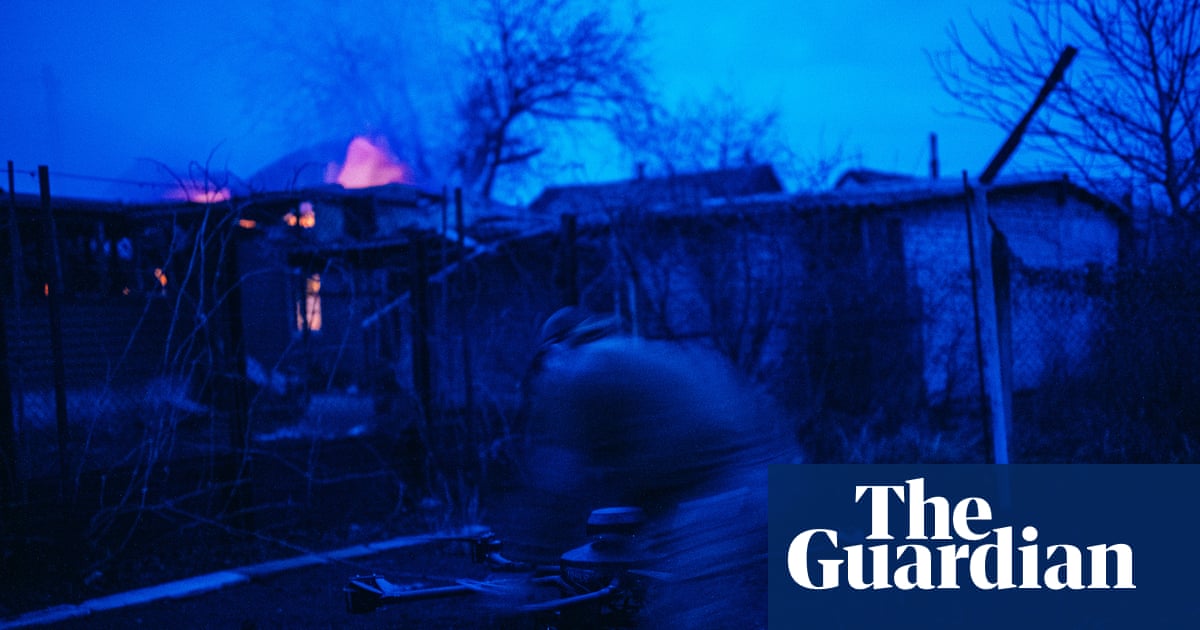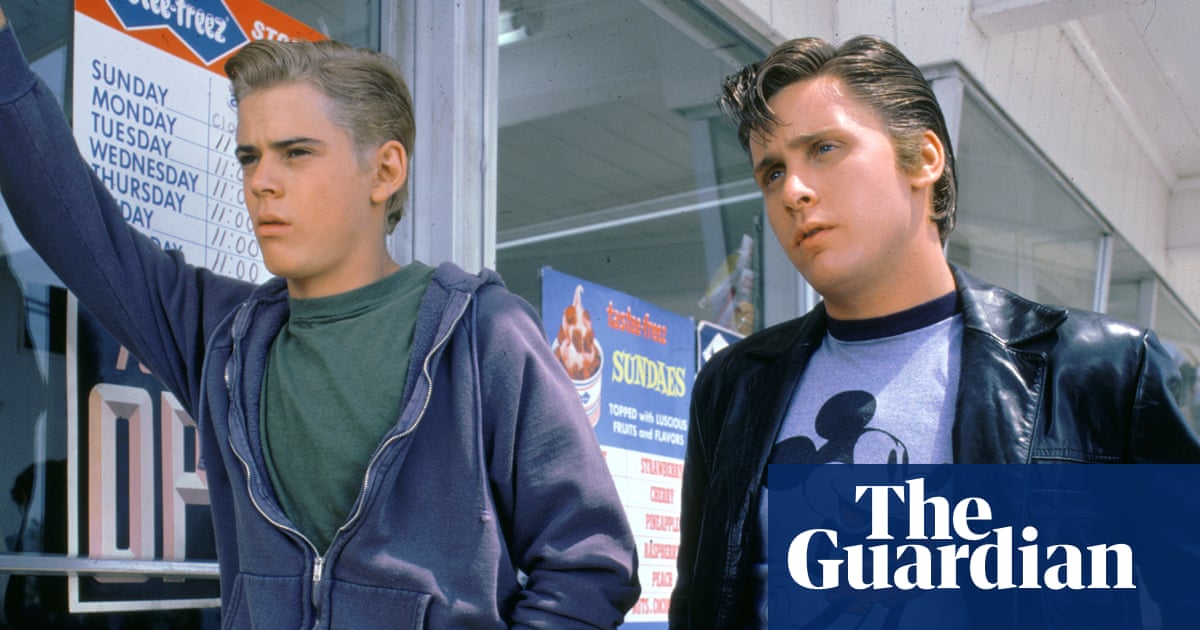By the time Laurence Olivier became Chichester Festival theatre’s first artistic director in 1962, he was already a revered Hamlet on stage and screen. But Chichester has never produced its own version of “the Danish play” until now. No pressure then for director Justin Audibert, who took over in 2023.
In a year of briskly delivered Hamlets set at sea (by Rupert Goold) or soundtracked by Radiohead (co-directors Steven Hoggett and Christine Jones), Audibert delivers not a high concept but a lucid and unhurried tragedy. In soliloquy after soliloquy, Giles Terera takes you deep into the prince’s torment, the intimacy of the Minerva accentuating the precision of his expressions. The lights come slightly up when he reaches “To be or not to be”, Terera’s eyes slowly closing on “perchance to dream” only to be rudely wakened before that line’s conclusion.

This Elsinore is long rotten thanks to designer Lily Arnold’s palette of greens and metallic shades. On a split-level stage, the castle’s walls are tarnished and the shine is to be wholly removed from the crown, spotlit on a cushion in the opening image. Sound designer Ed Clarke’s effects are akin to metal being stretched and vessels creaking, the ghost’s “swear!” resounding like a crack of lightning, while Arnold’s rocky coastline upstage reminds you of imminent invaders.
Ryan Day’s lighting takes its cue from Hamlet’s “inky cloak”: the prince is one of many figures glimpsed in the darkness, eavesdropping in a court where the warning “no tongue” is repeatedly sounded. Terera looms in the shadows as Claudius (Ariyon Bakare) is directly crowned by Gertrude (Sara Powell) and the new king is met with an obsequious chorus of approval at a candlelit council.
Through this, Terera simmers, eyes burning with hate, but melancholy tinges his delivery. His opening speeches convincingly convey a man processing the trauma of his father’s death and suggest he is already haunted, even before the arrival of the ghost (Geoff Aymer). This is a classical Hamlet who, by the time of his scorchingly lit final soliloquy, could not sound more modern, the personal turned political as he laments the deaths of thousands who “for a fantasy” fight for a plot of land.

Terera, 48, is only a little younger than Bakare, making their characters more direct rivals for Gertrude. Eve Ponsonby, too, is a mature Ophelia, emphasising a sense of enforced arrested development and adding a sting to the reprimands of Polonius, who chides her as a “green girl” and literally, repeatedly, puts her in her place. Ophelia, a redhead dressed in green, is seemingly imprisoned within the castle’s rust-coloured walls.
In a skilful performance as Polonius, Keir Charles gives us a figure of fuss and fury. Bakare delivers a slow-burning villainy as Claudius, whose trembling red right hand, concealed by a glove, is a reminder of his bloody deed and foreshadows God’s possible vengeance. Powell’s Gertrude is so racked with guilt the suggestion is that she drinks poison knowingly.
At three and a half hours, the pace occasionally wavers but it is robustly acted (Sam Swann is a fine Horatio, Beatie Edney a gravedigger of earthy humour) and Audibert shows a keen understanding of the Minerva’s capacity for atmosphere. He is not the first to use Claudius’s prayer scene as an interval cliffhanger but as the former artistic director of the Unicorn, a children’s theatre, you sense he does so knowing there will always be audiences new to this play. As first Hamlets go, it’s a beauty.

.png) 2 months ago
62
2 months ago
62

















































